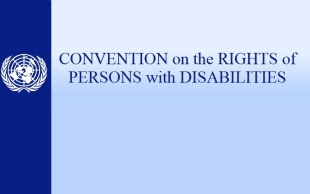The Silencing of Severe Autism Across the Pond
Much of what Jane McCready in the quotation below comments on Her full commentary can be found at the attached link above) is true here in Canada where the Liberal Party of Canada passed a Medicare for Autism resolution but the Liberal PM Justin Trudeau simply ignored. Here in NB the need for an Autism Village of autism specific care homes with an Autism Centre centrally located in Fredericton has been ignored by Liberal and Conservative governments which instead sponsored the government based Autism Connections Fredericton to "tour" the province seeking input from parents and who recommended more funding for .... hold your breath ... autism community centres which primarily serve persons without the 50% (WHO figure) of the autism spectrum with severe autism and intellectual disability The Report trivialized and misrepresented the realities of the 50% of the NB autism spectrum with severe autism and intellectual disability. Meanwhile the UNBCEL presented an Atlantic Provinces Autism Conference which did not feature any of the NB parents who speak for our children with severe autism and intellectual disability.
The UK's embrace of a celebratory stance on autism obscures autism’s harsh realities and invites de-funding, writes Jane McCready
Jane McCready:
"Not sure anyone other than severe autism/disability parents can understand that race to sort things out before we die. Dying with a severely autistic son feels a bit like leaving a 2 year-old standing alone in the middle of a busy motorway. Helpless and vulnerable out in the world. Plans have to be made, siblings consulted, we have to make watertight wills, have to make sure he learns as many independent skills as possible. Before we become little old people too frail to help him with the skills he hasn’t learned to manage himself. Shaving, showering, cutting his toenails, making food, taking a bus to the supermarket, talking to express his needs. The list is endless. All stuff that the late-diagnosed, level 1 autists who lecture me on Twitter, and take places on autism boards, have picked up easily and take for
granted. ................... https://www.ncsautism.org/…/the-silencing-of-severe-autism-…"





